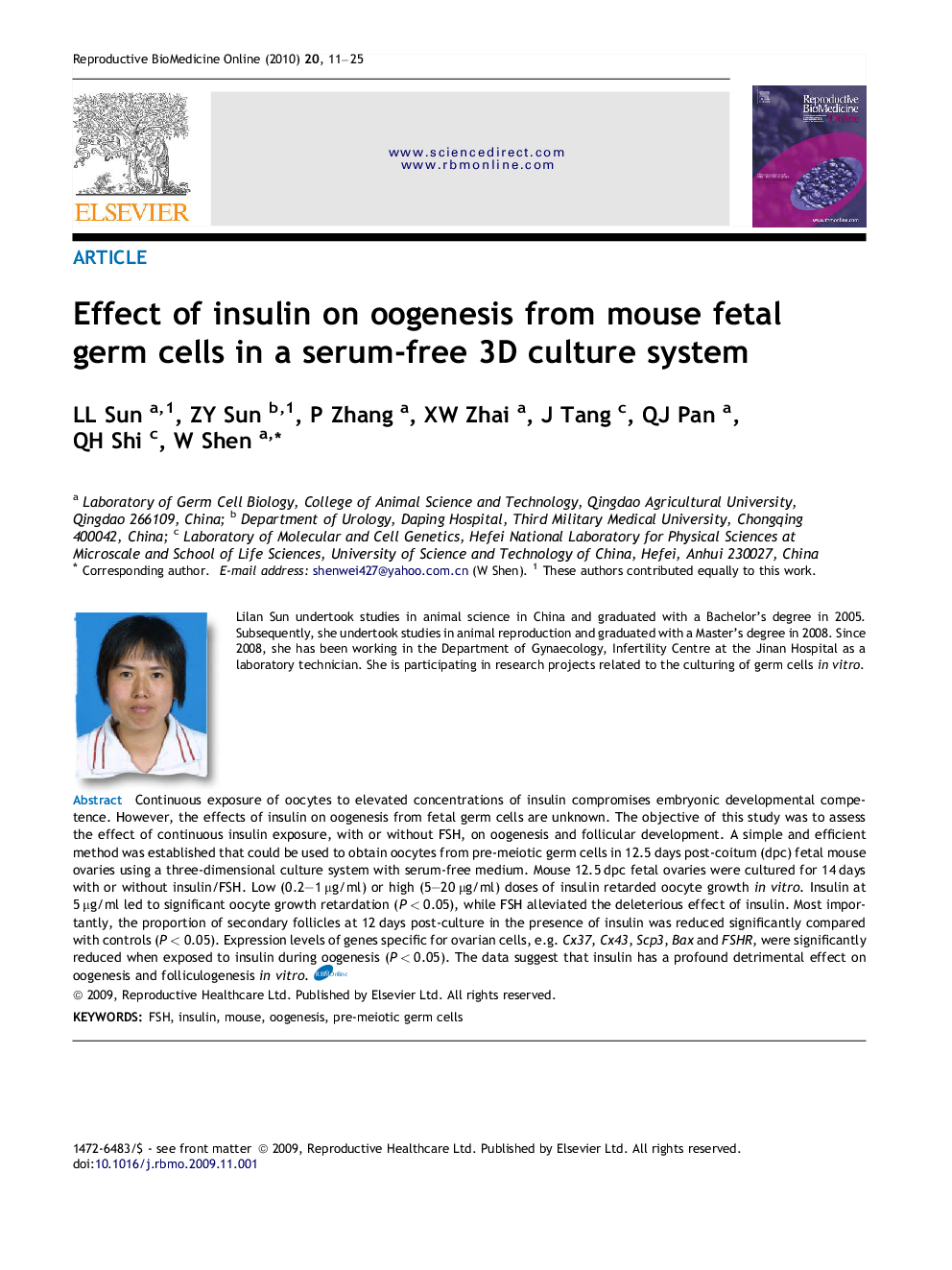| Article ID | Journal | Published Year | Pages | File Type |
|---|---|---|---|---|
| 3971904 | Reproductive BioMedicine Online | 2010 | 15 Pages |
Continuous exposure of oocytes to elevated concentrations of insulin compromises embryonic developmental competence. However, the effects of insulin on oogenesis from fetal germ cells are unknown. The objective of this study was to assess the effect of continuous insulin exposure, with or without FSH, on oogenesis and follicular development. A simple and efficient method was established that could be used to obtain oocytes from pre-meiotic germ cells in 12.5 days post-coitum (dpc) fetal mouse ovaries using a three-dimensional culture system with serum-free medium. Mouse 12.5 dpc fetal ovaries were cultured for 14 days with or without insulin/FSH. Low (0.2–1 μg/ml) or high (5–20 μg/ml) doses of insulin retarded oocyte growth in vitro. Insulin at 5 μg/ml led to significant oocyte growth retardation (P < 0.05), while FSH alleviated the deleterious effect of insulin. Most importantly, the proportion of secondary follicles at 12 days post-culture in the presence of insulin was reduced significantly compared with controls (P < 0.05). Expression levels of genes specific for ovarian cells, e.g. Cx37, Cx43, Scp3, Bax and FSHR, were significantly reduced when exposed to insulin during oogenesis (P < 0.05). The data suggest that insulin has a profound detrimental effect on oogenesis and folliculogenesis in vitro.
